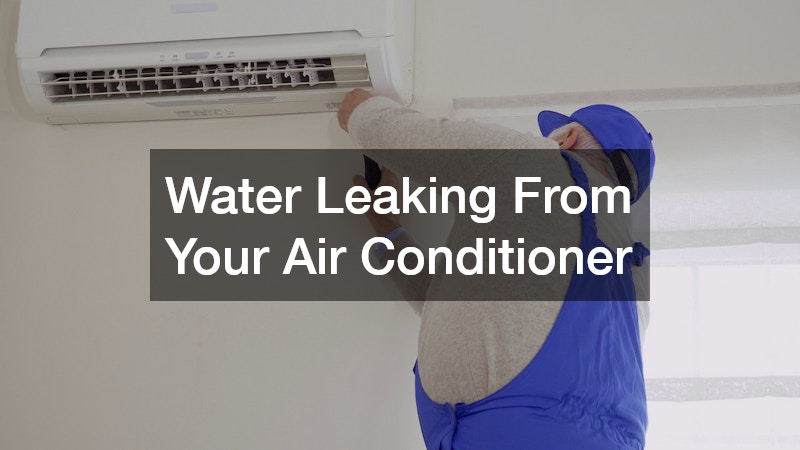Your air conditioning system works hard to keep your home cool and comfortable, especially during the hottest months of the year. But like any mechanical system, your AC unit can develop issues over time. While some problems might seem minor at first, they often signal bigger concerns that can lead to expensive repairs if left unaddressed. Knowing the signs of a struggling air conditioner can help you catch problems early and know when to call a professional air conditioning repair company. Here’s how to tell when it’s time to call a professional air conditioning repair company.
Air Conditioner Is Making Strange Noises
One of the most common early warning signs of AC trouble is unusual noise. When your air conditioner is running properly, it should operate with a low hum or a soft blowing sound. If you start hearing banging, rattling, hissing, grinding, or squealing, there’s a good chance something isn’t working as it should.
Unusual noises can stem from a variety of mechanical and technical problems. A banging or clanking sound could mean there’s a loose or broken part inside the unit. Squealing noises often come from worn-out fan belts or motor bearings. Grinding noises can indicate an issue with the motor itself, while hissing may suggest a refrigerant leak or a problem with internal pressure.
It might be tempting to ignore these noises, especially if your air conditioner still seems to be cooling the home. However, this approach often leads to more serious consequences. A minor issue like a loose part can cause wear and tear on other components, leading to a chain reaction of failures. What starts as a relatively simple repair can quickly escalate into a major, and costly, fix—or worse, require replacing the entire unit.
Air Conditioner Is Not Cooling Properly
Few things are more frustrating than an air conditioner that’s running, but not actually cooling your home. If your system isn’t maintaining a consistent, comfortable temperature, there could be several issues at play.
A common cause of inadequate cooling is a refrigerant leak, which reduces the system’s ability to remove heat from the air. If your system is low on refrigerant, it will have to work harder to reach the desired temperature, and in some cases, it may not be able to cool your space at all. Airflow problems are another frequent culprit. Dirty or clogged air filters, blocked vents, or issues with the blower fan can all restrict airflow and reduce cooling performance. Sometimes, the problem lies with the thermostat—if it’s not reading temperatures accurately or communicating properly with your system, the AC won’t respond as it should.
Beyond comfort issues, poor cooling performance can also take a toll on your energy bills. When your air conditioner isn’t working efficiently, it runs longer cycles and consumes more power, all while delivering subpar results. Over time, this added strain can shorten the life of your system and increase the likelihood of breakdowns.
While it’s always a good idea to check simple things like your thermostat settings and air filter first, persistent cooling problems often require professional attention. A certified HVAC technician can run a thorough diagnostic to identify the root of the issue—whether it’s low refrigerant, a malfunctioning compressor, or something else entirely—and recommend the right solution to get your system back on track.
Water Leaking From Your Air Conditioner
Another red flag that should never be ignored is water leaking from your air conditioning unit. While it’s normal for your AC to produce condensation as it cools the air, that moisture should be drained away safely and efficiently. If you notice water pooling around your unit, something is likely wrong.
One of the most common causes of AC leaks is a clogged condensate drain line. Over time, algae, mold, and debris can accumulate in the drain line, causing water to back up and overflow. In other cases, a rusted or cracked drain pan may no longer be able to hold water properly. A malfunctioning condensate pump can also lead to leaks, particularly in systems where the unit is located in a basement or attic and relies on a pump to remove water.
Leaking water from your AC may seem like a minor issue at first, but it can lead to serious damage if not addressed promptly. Standing water can ruin flooring, drywall, and insulation. Even more concerning, it can promote mold growth, which can affect indoor air quality and pose health risks, especially for those with allergies or respiratory conditions.
If you see water around your unit, it’s best to turn off the system and call a repair professional right away. A technician can inspect the drain lines, pump, and other components to identify the source of the leak and make the necessary repairs. Not only will this fix the immediate problem, but it will also help prevent future leaks and damage to your home.
By acting quickly, you can prevent minor issues from turning into major repairs, improve your system’s efficiency, and extend the lifespan of your air conditioner. If your AC is showing any of these symptoms, don’t wait until it breaks down completely. Call a trusted air conditioning repair company today and make sure your home stays cool, comfortable, and safe all season long.
.


